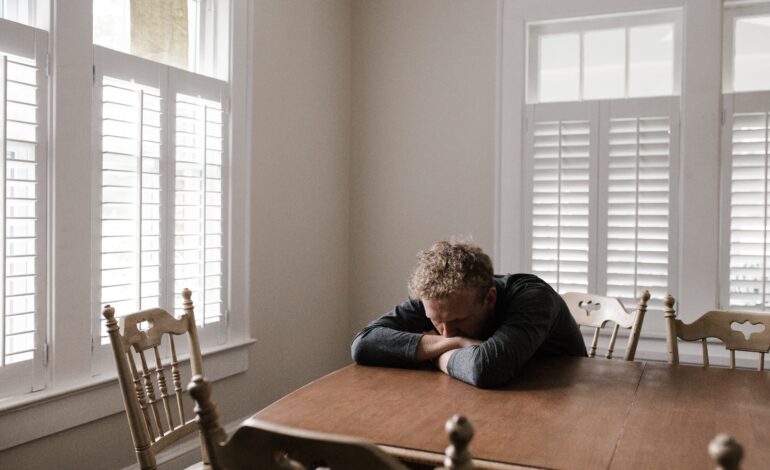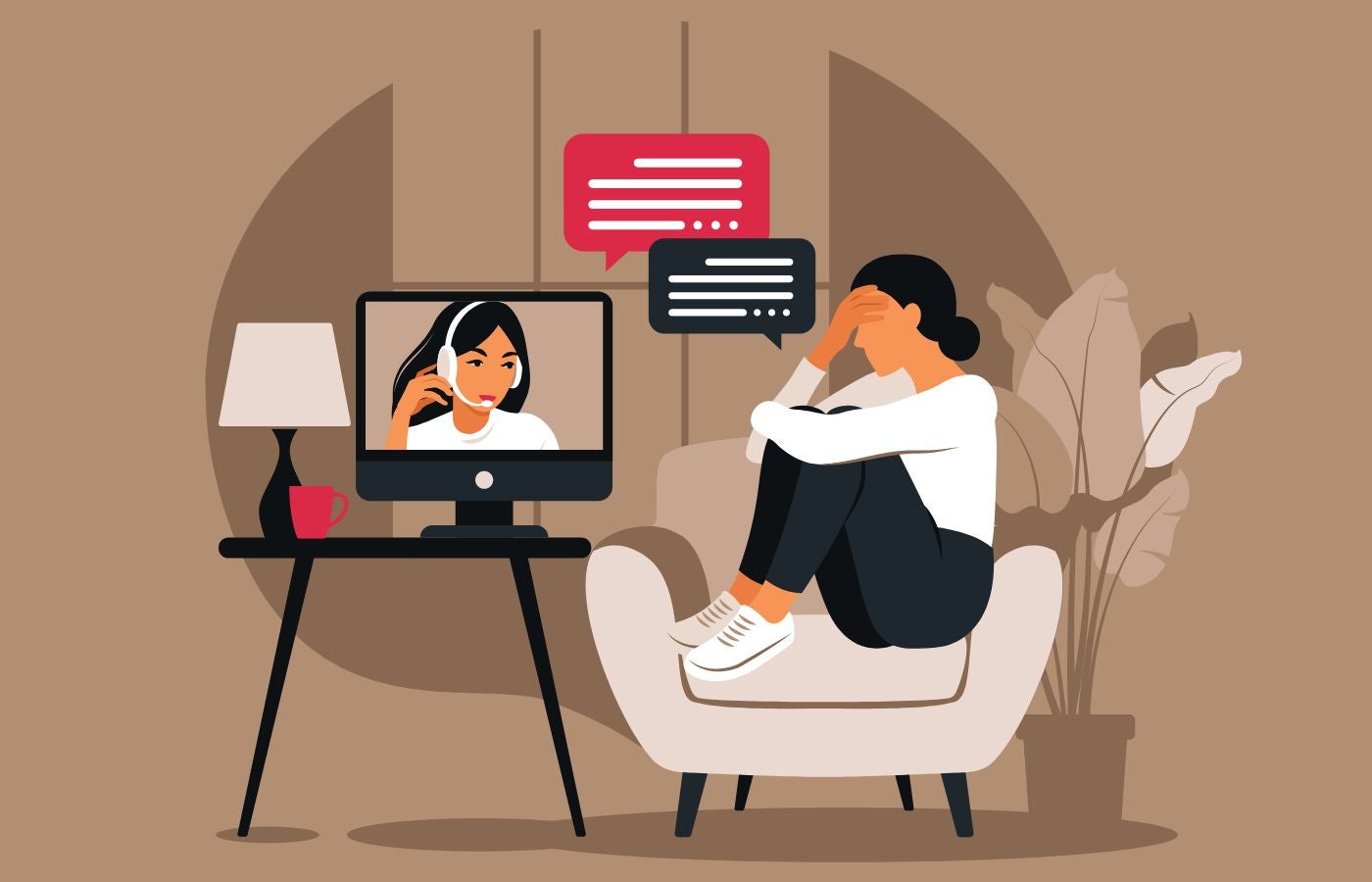
Mental health awareness is an essential topic that promotes understanding, compassion, and support for individuals facing mental health challenges. Breaking the stigma surrounding mental health is crucial to creating an environment where people feel comfortable seeking help and receiving the support they need.
Here are some key points to consider when discussing mental health awareness, breaking the stigma, and seeking help:
Understanding mental health
Mental health is a state of well-being in which an individual realizes his or her own abilities, can work productively and fruitfully, and is able to make a contribution to his or her community. It is more than just the absence of mental illness, it’s having a positive outlook on life.

Mental health includes our emotional, psychological and social well-being. It affects how we think, feel and act and influences how we handle stress, relate to others and make choices. Mental health conditions are common and can affect anyone regardless of age, gender or race.
Recognizing the stigma
If you’re dealing with mental health issues, it’s important to recognize the stigma that surrounds them. Stigma refers to negative attitudes, beliefs, and stereotypes associated with mental health conditions. Stigma often leads to discrimination, isolation, and a reluctance to seek help. Common misconceptions include considering mental illness a sign of weakness or assuming individuals can “snap out” of their conditions. If you’re feeling isolated because of your condition or are worried about what people might think about you if they knew about your struggles with mental health issues, remember that you don’t have to face these challenges alone. There are many resources available online and in person that can help you learn more about your condition as well as connect you with other individuals who are going through similar struggles.
The importance of awareness
Mental health is a major part of our lives, but it is often misunderstood. In fact, the World Health Organization estimates that more than 300 million people worldwide have a mental disorder. And while many people experience mental illness in some way during their lifetime, stigma and lack of awareness can keep us from talking openly about it.
Increasing mental health awareness helps educate individuals about mental health conditions, their prevalence, and the impact they can have on people’s lives. By promoting accurate information, we can challenge stereotypes, dispel myths, and encourage empathy and understanding.
Encouraging open conversations
It’s time to talk about mental health. We’ve all heard the statistic: 1 in 5 Americans suffers from mental illness. That means that chances are, you know someone who has dealt with a mental health issue. And yet, it’s still considered taboo to talk about these issues openly and honestly.
But why? Why is it that when we see someone on the street who is visibly struggling with depression or anxiety, we assume they’re just having a bad day? Or that they’re just being dramatic? We don’t know their story; maybe they’re dealing with something far deeper than we could possibly imagine.
So let’s break down those barriers! Let’s start talking about how we’re feeling and what we need from each other—and let’s do it openly and honestly. Let’s remember that our words have power, and that by sharing our stories with each other, we can reduce the sense of isolation and create connections with others who may be going through similar challenges.
Promoting self-care and well-being
If you’re feeling stressed, tired, or just generally not yourself, it’s time to take a step back and focus on your mental health. If you’re like most people, self-care can feel like a luxury—something that’s nice but not really necessary for survival. But the truth is that prioritizing self-care is essential for maintaining good mental health. Encouraging activities such as exercise, proper nutrition, relaxation techniques, and quality sleep can help reduce stress and improve overall well-being.
It’s easy to get caught up in your daily responsibilities and forget about taking care of yourself. When you do have time off from work or school, sometimes it feels like there are so many other things to do: catch up on TV shows; catch up on emails; catch up on bills; go out with friends; cook dinner… the list goes on!
But if you’re having trouble sleeping or focusing because of stress or anxiety, then it might be time to make some changes. Start by doing something small every day—even if it’s just taking a few minutes for yourself before bed or going for a walk during lunch hour. You’ll feel better in no time!
Seeking professional help
It’s important to emphasize that seeking professional help is a sign of strength and self-care, not weakness. Encourage individuals to reach out to mental health professionals, such as therapists, counselors, or psychiatrists, who can provide support, therapy, and, if necessary, medication.
There are many reasons why you might be hesitant to seek help: maybe you’re worried that people will think you’re crazy; maybe you think it’s too expensive; maybe you just don’t want anyone else knowing about your problems. But these are all valid concerns—and they’re not what makes you weak.
What makes you strong is being able to recognize that sometimes we need support from others in order to take care of ourselves. And when it comes down to it, getting the help you need doesn’t mean anyone has to know anything about your struggles—it means only that those struggles are being addressed directly so they don’t get in the way of living your best life!
Taking care of others

There’s nothing more important than taking care of the people you love, especially when they’re struggling with mental health issues. If someone you know is confiding in you about their struggles with anxiety or depression, listen empathetically and non-judgmentally. Offer support and encouragement as they seek help—and remind them that they are not alone in their struggle.
We believe that everyone deserves to feel supported and loved by the people who care about them most. That’s why we created this guide to caring for someone with mental health issues: to help you understand what it means to be there for a friend or family member who needs it most, and to encourage you to take action if you find yourself in a situation where someone needs your support.
Advocacy and policy change
You know that you should take a break from your phone, but you can’t bring yourself to do it. You know that it’s unhealthy to eat fast food every day, but you just keep doing it. You know that you should be exercising more, but you’re too busy. We all have our little problems—and they’re not going away on their own.
We need to start taking action—and we can start by advocating for change in policies and societal attitudes surrounding mental health awareness and support systems. By supporting initiatives that promote mental health education, affordable access to care, and destigmatization efforts, we can make a positive impact on the lives of millions of people who are suffering from poor mental health and don’t even realize it.
Remember, breaking the stigma surrounding mental health is an ongoing process that requires the collective effort of individuals, communities, and organizations. By promoting understanding, empathy, and access to support, we can create a more inclusive and supportive environment for everyone facing mental health challenges.
RUCHI RATHOR Founder & CEO
Payomatix Technologies Pvt. Ltd.
FOUNDER AND INVESTOR | PAYMENTS PROCESSING EXPERT | MERCHANT ACCOUNT SOLUTIONS | WHITE LABELLED PAYMENT GATEWAY | Dreamer, Creator, Achiever, Constantly Evolving
Website Ruchi Rathor: https://ruchirathor.com
Website Healing Heart https://thehealingheart.me/
Instagram https://www.instagram.com/ruchirathor/
LinkedIn https://www.linkedin.com/in/ruchirathor12/
Facebook https://www.facebook.com/ruchi.rathor.magnificient
Tumblr https://www.tumblr.com/blog/ruchirathor-thehealingheart
Medium https://medium.com/@ruchirathor_23436









